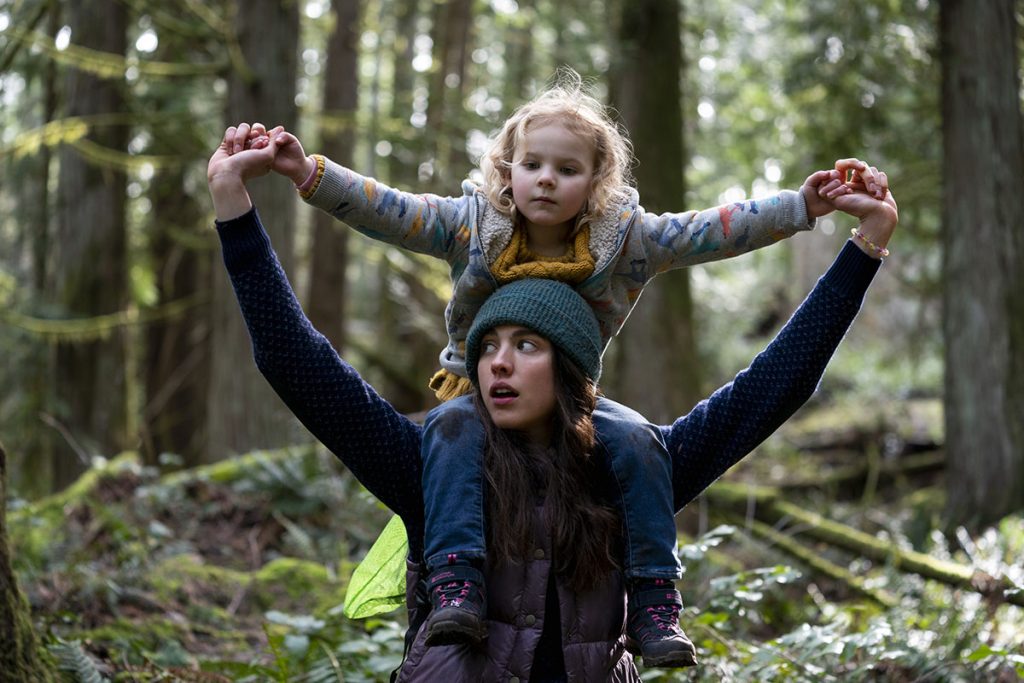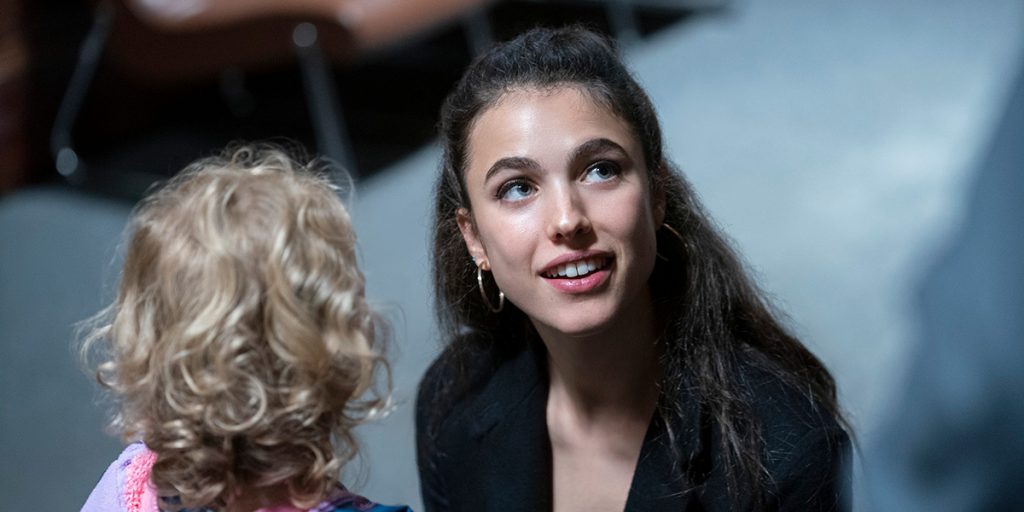Less than two months after its release, Maid has brought audiences across the world to their knees. Gritty, raw, almost painful in places, this Netflix series more than lives up to the hype.
If you needed any convincing that mothers are superhuman, this show is it. Inspired by Stephanie Land’s New York Times best-selling memoir “Maid: Hard Work, Low Pay, and a Mother’s Will to Survive,” this series is a slow-burning fire that sets emotions ablaze. The show follows Alex (Margaret Qualley), a single mother and aspiring writer, as she flees an abusive relationship, stares homelessness in the face, and attempts to build a better world for her daughter. This woman does the damn thing, and she does it almost entirely alone.
Something Maid does so well is address and explore complex themes of alcoholism, mental health issues and the cycle of abuse without making you want to throw yourself off a bridge. Don’t get me wrong: it’s bleak in places, at times almost impossible to watch, but this story is ultimately a positive one, one of love, survival and of outright refusal to give up. I alsodidn’t expect to laugh so much during this show:that sounds bad, but watch it, and you’ll know what I mean. Moments of humour and some excellent one liner’s are littered throughout, lifting the mood when it is desperately needed, gotta laugh or you’ll cry, right? So yeah, stock up on Kleenex but also expect some entertainment. This show is a realistic illustration of life’s rich tapestry: things are never completely awful or entirely great (despite what Instagram might tell you), and even in Alex’s darkest times there are glimmers of hope, namely her three-year-old daughter and guiding light, Maddy (Rylea Nevaeh Whittet).
Maddy is the axis on which the narrative spins, the centre of her mother’s universe; all of Alex’s efforts are in pursuit of a brighter future for her child. Maddy also seems to hold a symbolic value, a manifestation of the cycle of abuse and of Alex’s determination to break it. There are a lot of cupboards in the show (stay with me), a subtle metaphor that speaks volumes to the realities of domestic violence. Alex has a complex relationship with her father (Billy Burke), whom Alex’s mother (Andy MacDowell) left when she was a young child. As the show unfolds, Alex begins to piece together memories of her childhood and remembers hiding in a cupboard to escape from her father’s violence against her mother: cupboard number one.
In a subplot, during Alex’s time as a maid, she cleans the home of a recently deceased woman whose son was an infamous criminal. When clearing out the house it becomes clear that this woman was abusive towards her son, with Alex finding a small cupboard in which he was presumably locked as a child: cupboard number two. Towards the end of the series, after an explosive argument with her partner Sean (Nick Robinson), Alex finds Maddy cowering inside the kitchen cabinet: cupboard number three. Finding Maddy visibly recreating her childhood, (spoiler) Alex is given the strength to leave Sean for the last time. The subtle symbolism here sheds light on how childhood abuse manifests in later life, and how escaping this abuse is never as simple as just walking out the door.

During her time at a domestic violence shelter, Alex meets Danielle (Aimee Carrero), a firecracker of a character whose story really broke my heart. Danielle becomes a friend and confidant, helping Alex to navigate messy custody battles and the challenging realities of single motherhood and life after abuse. Well, maybe life after abuse is the wrong way of putting it: Danielle, as a character, seems to exemplify that, truly, there is no such thing as life after abuse, showing that leaving is only the first part of a long road of recovery and the strength to stay away is a constant battle. The pairing of Danielle and Alex is another way the show illustrates the complexities of domestic violence.
Danielle was physically abused by her partner and has the scars to show it, as Alex struggles to identify herself as a victim as Sean had never physically harmed her, Danielle points out that Alex’s experiences are still that of domestic violence. Abuse can look like a lot of things. It’s not all black eyes and bruises it can look like fear, isolation and forced financial dependency. Danielle reminds us that we shouldn’t demand physical proof in medical reports before we identify a victim, as she says in a particularly harrowing scene: ‘before they bite, they bark; before they hit you, they hit near you’.
Stylistically, the show is very cleverly shot. Audiences are brought into Alex’s innermost thoughts through experimental techniques and imagery. Financial instability is a key theme throughout the series, and the repeated displaying of Alex’s income, down to the last cent, is an engaging example of the unrelenting challenges of a single mother and domestic abuse survivor. Alex’s disorientation is displayed through imagined scenarios, often amusing, that really hammer home the holes in the social care system and the uphill battle Alex has no choice but to fight.
The final scene of Maid will undoubtedly bring you to tears. Beautifully executed and wonderfully uplifting, the closing scene really makes you feel as though you have been on Alex’s journey too. We see a life once broken reborn, and a world rebuilt from ruin. As Alex looks at Maddy, we are reminded of the key foundations of the show: ‘a mother’s will to survive’. With her daughter’s hand in hers, Alex looks at Maddy and says, ‘this whole new world is for her.’
Maid is heartbreaking, beautiful, and above all important. Never have we seen a portrait of abuse and survival painted with both delicacy and grit. You’ll laugh, you’ll most definitely cry and hopefully come away with a mind that is more open to the realities of domestic violence and mental illness. This show truly is essential viewing: watch it, learn from it.You’ll never be sorry you did.
Maid is now available to watch on Netflix.

